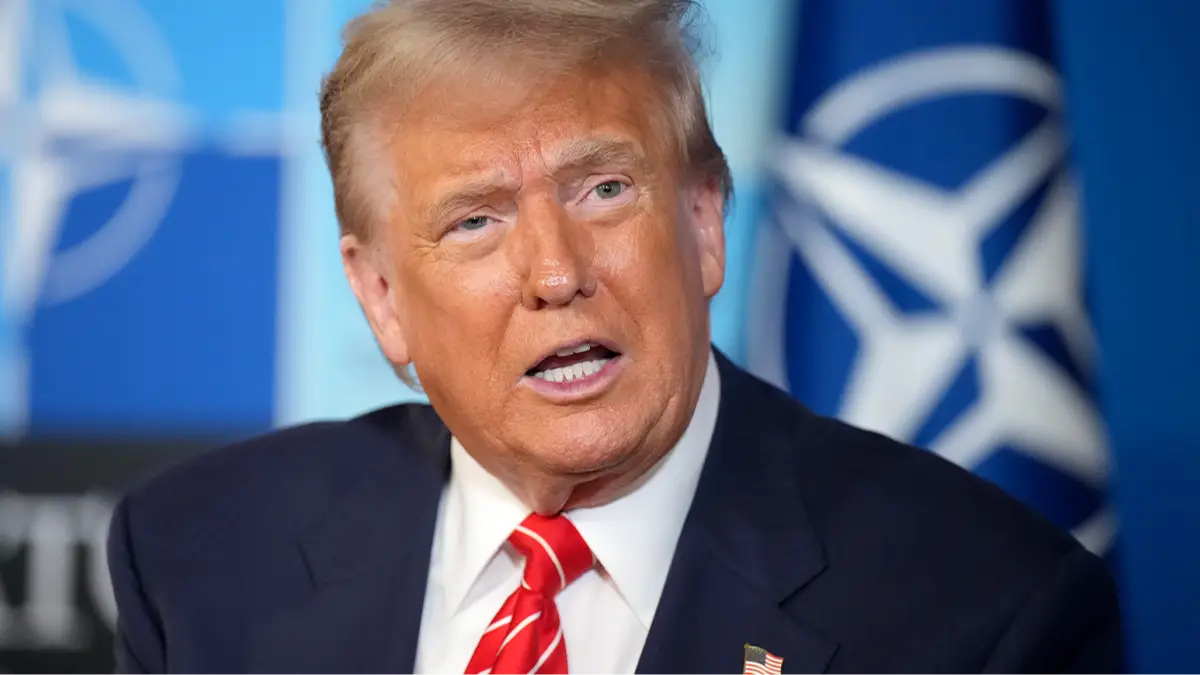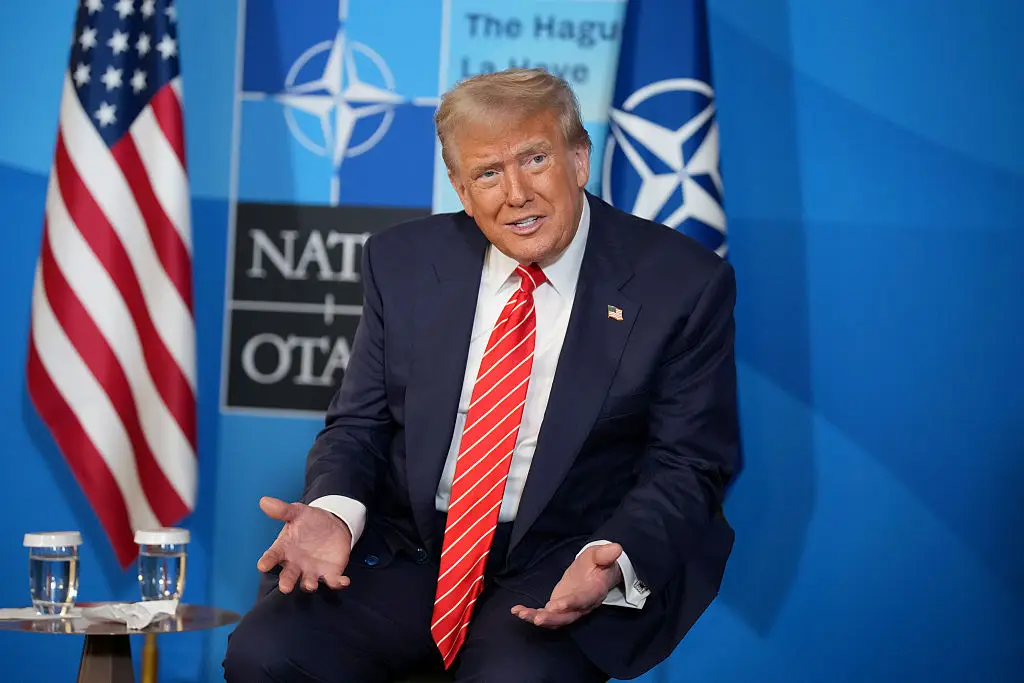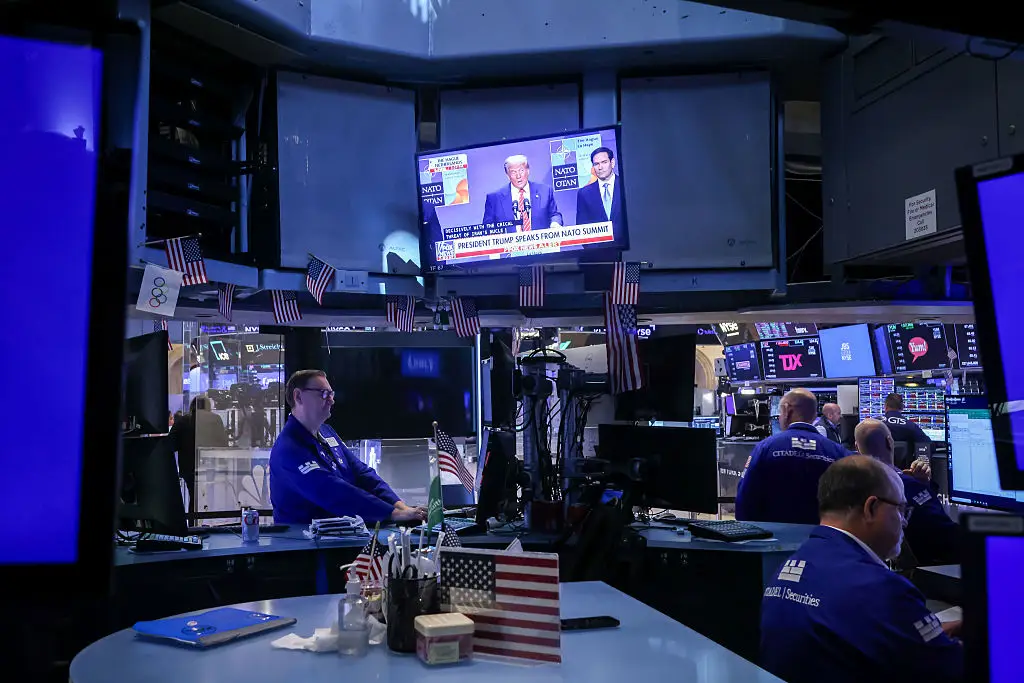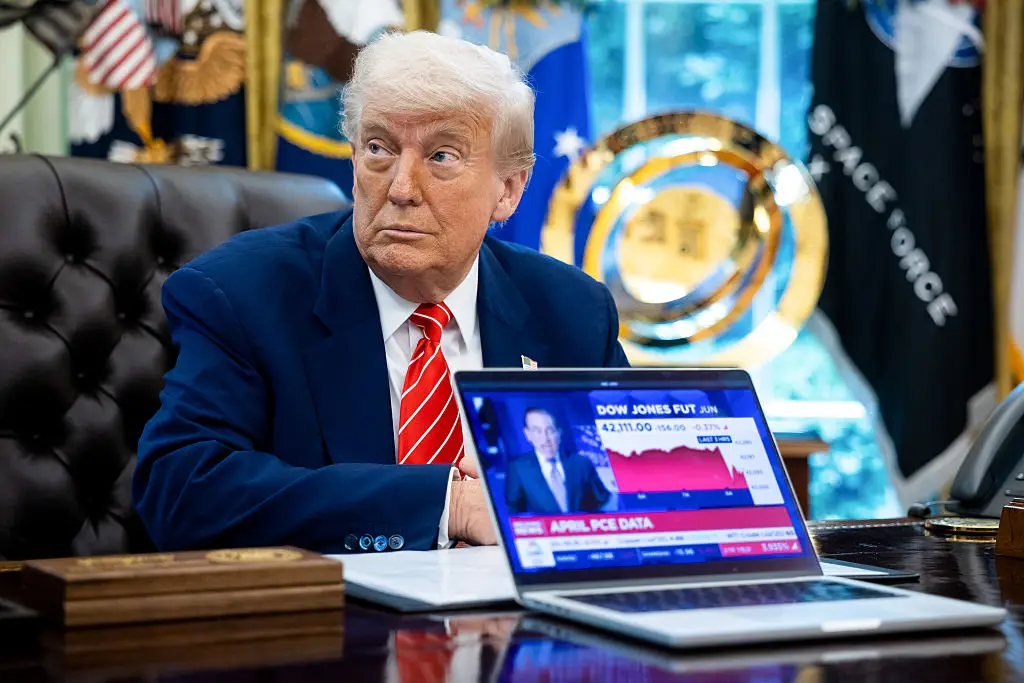
One of the top economists on Wall Street has suggested President Donald Trump may have 'outsmarted us all' with his tariff policies.
Upon reclaiming the Oval Office in January, the 79-year-old wasted no time at all in placing heavy levies on some of America's most vital trading partners - Canada, Mexico and China, before then implementing taxes on imports from every country and island worldwide.
Bizarrely, that included an island inhibited only by seals and penguins. Countries that fought back against the administration's reciprocal tariffs, were hit with heavier levies.
China ended up the worst hit due to President Xi Jinping placing counter-tariffs on the US, resulting in taxes as high as 145 percent being placed on some Chinese goods coming into the US.
Advert

It didn't fare well for the communist nation, who saw demonstrations held at some factories that had to temporarily close.
But the US economy is now operating from a position of strength, with the stock markets S&P 500 and Nasdaq both recording a record closing high on Friday (June 27) as stocks surged.
One of the Republican's harshest critics was Apollo Global Management's Torsten Sløk, who works as the investment giant's chief economist.
In April, he warned the US government that its tariffs could trigger a recession that by the summer which would result in thousands of layoffs across the nation, hitting the US economy hard.
However, Sløk has since changed his tune, taking to his blog for Apollo Academy on Saturday last week (June 21) to concede that he might have been wrong.

"As we approach the Trump administration’s self-imposed 90-day deadline for trade deals, markets are starting to speculate about what comes next. The longer uncertainty remains elevated, the more negative its impact on the economy, as shown in the chart below," he wrote.
"Maybe the strategy is to maintain 30 percent tariffs on China and 10 percent tariffs on all other countries and then give all countries 12 months to lower non-tariff barriers and open up their economies to trade.
"Extending the deadline one year would give countries and US domestic businesses time to adjust to the new world with permanently higher tariffs, and it would also result in an immediate decline in uncertainty, which would be positive for business planning, employment, and financial markets."
Before concluding: "This would seem like a victory for the world and yet would produce $400 billion of annual revenue for US taxpayers.

"Trade partners will be happy with only 10% tariffs and US tax revenue will go up. Maybe the administration has outsmarted all of us."
Back in April, I mentioned that in terms of the starting a trade war with the world, there actually might be method in Trump's madness, in the sense that his administration is hoping for a level playing field with many countries slapping higher taxes on US imports than any other country.
Could I be Wall Street's next top economist?
Trump believes the pressure from the tariffs will eventually see the trade barriers reduced on US goods, while also hoping for more products to be produced domestically.
But while the US holds on hope, it must first brace for retaliatory tariffs - with costs passed onto consumers in the nation.
Topics: Donald Trump, Tariffs, China